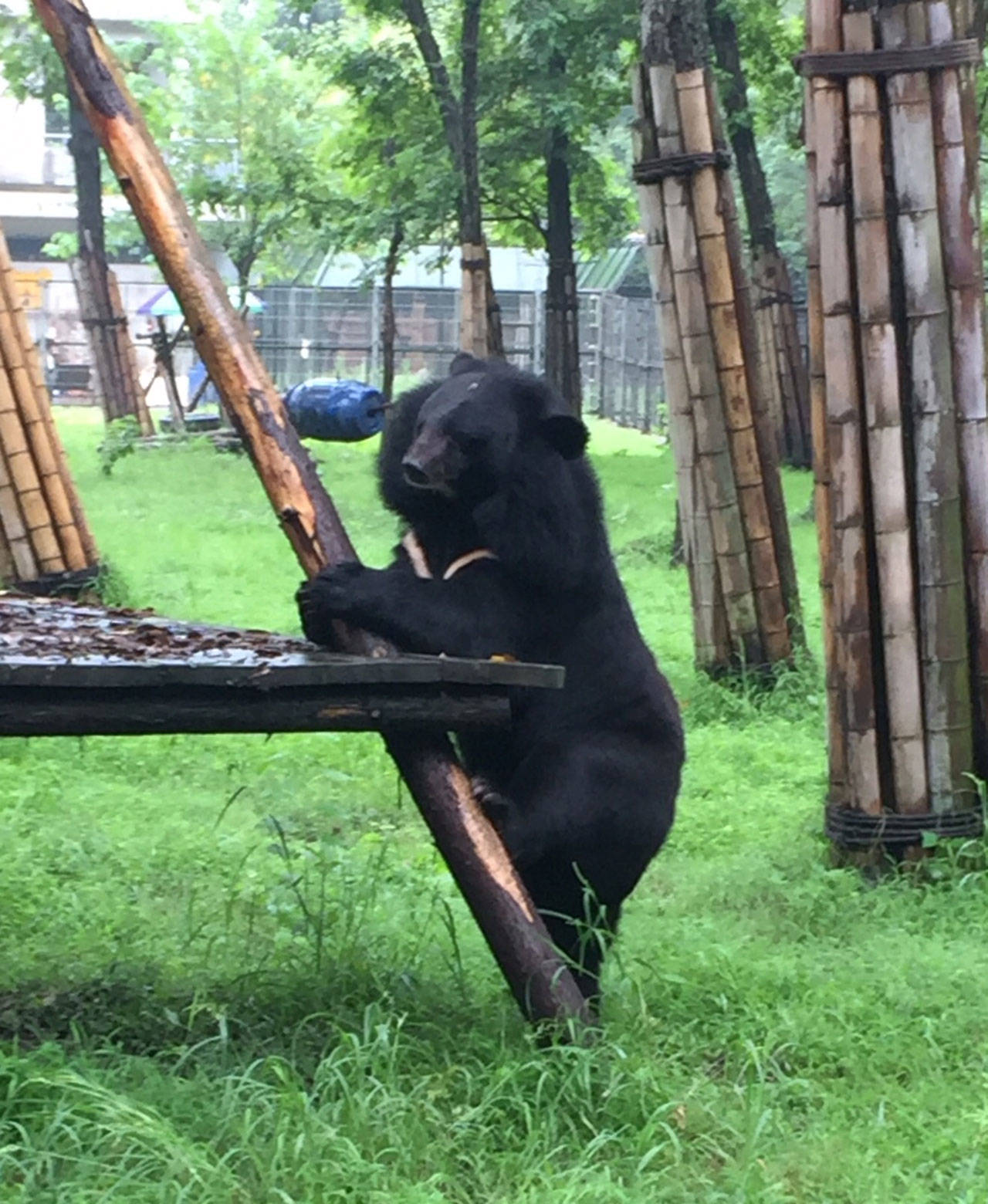Frequently captured as cubs, Asiatic black bears, or moon bears, are forced to live in cages so small they cannot move. That is only the beginning of the horror for the animal’s life in the bear bile farming industry.
“In all my years working in animal welfare, I have never seen this level of cruelty,” Jan Murphy said.
At 6 p.m., Oct. 8, at the San Juan Public Library, Murphy will give a talk about her recent trip to China and what Animal Asia, a non-profit organization is doing to end the bear bile industry. Murphy will also be showing “To the Moon and Back,” a 53-minute documentary. The film features Jill Robinson, the founder of the Animals Asia Foundation, a Hong Kong-based charity that seeks to end cruelty to animals. Murphy will also take the presentation to the Orcas Island Library on Nov. 15 at 5 p.m.
The bile industry of China and Vietnam appears to only target moon bears, according to Murphy. These bears are striking creatures, with their jet black coats and white crescent blazed across their chest. In the wild, they can live to be 30 to 40 years old, and spend much of their time in trees feeding on a variety of vegetation. The bile is used for an array of medical purposes. To get that bile extreme measures are used.
Besides keeping the animals in tiny cages, a tube is inserted inside their gallbladder that constantly drains their bile. In order to insert effectively, the bears liver is moved and tacked down on the opposite side of their body. Frequently infections occur around the tube, Murphy said, and any medicinal value is negated by the fact that anyone drinking the bile is also drinking puss. As a result of this horrendous practice, the bears often suffer from severe medical issues for the rest of their lives.
Twenty years ago Robinson learned of the industry and investigated some of the farms, she writes in her blog. After one caged bear gently reached out and grasped her hand, Robinson took it upon herself to end the industry. Thus began the Animal Asia Foundation.
“Jill is so extremely compelling,” Murphy said, explaining that while living in San Diego, Murphy attended a talk by Robinson. There were over 100 people attending that talk, and every one was in tears by the end. Murphy herself left the lecture determined to take action to save these bears. She has spent the last 15 years involved in Animal Asia.
“She has gone about [ending the bear bile industry] by working with the Chinese people rather than against them,” said Murphy, and as a result, the organization has been incredibly successful.
Not only has the organization rescued moon bears, but at it has changed how people view all animals. For example, the cat and dog meat trade has been affected by this shift in perspective, according to Murphy, and they are realizing other animals feel pain.
As another example of this shift in awareness, she tells the story of an older Asian couple who kept a bear caged in their basement for over 20 years. They agreed to release it to a sanctuary.
“They cried as the bear was taken away,” she said, noting that despite how they treated the animal, they did bond with it and obviously cared enough to do the right thing in the end. Bear bile farming is now illegal in Vietnam however, because many of these farmers are small family run industries like the couple mentioned, it is difficult for the government to track all the operations. In China, the industry remains legal, though it is regulated. Farms in China are larger and more commercial. According to the website for Animal Asia, there are an estimated 100 large-scale farms and each one has about 2,000 caged bears.
Through Murphy’s involvement with the group, she and a dozen others were recently invited to visit the bear sanctuary in Chengdu, China to celebrate Animal Asia’s 20th anniversary.
“I cried when I saw my first moon bear at the sanctuary,” Murphy said. “I think we all did.”
Part of the emotion stemmed from the hard work involved. Animal Asia currently houses nearly 700 bears throughout their sanctuaries. Other emotions came from knowing what these bears have been through.
“We have a full staff of veterinarians,” Murphy explained because these bears require extensive medical attention. Often, after a life squished in one position, the animal needs to have limbs amputated. They frequently have missing or broken teeth from trying to chew out of the cage. Many of the bears have become blind and suffer from infections and tumors.
There are an estimated 10,000 bears still caged, but Murphy is hopeful.
“The industry is dying. I think in 20 more years, it will be gone. However, these bears need help now, today,” Murphy said.
For more information, visit www.animalsasia.org.



